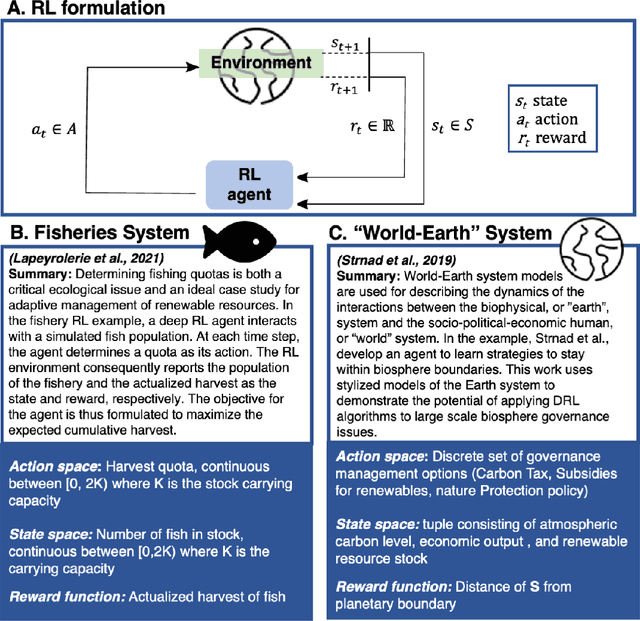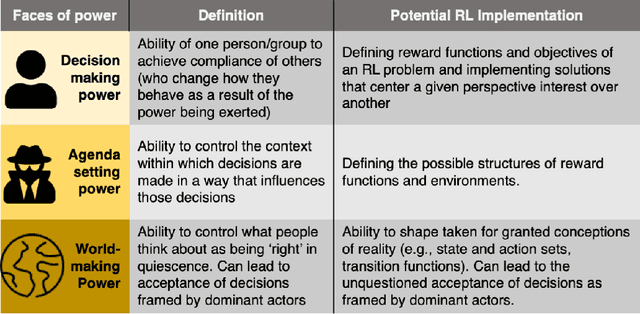Caleb Scoville
Power and accountability in reinforcement learning applications to environmental policy
May 22, 2022


Abstract:Machine learning (ML) methods already permeate environmental decision-making, from processing high-dimensional data on earth systems to monitoring compliance with environmental regulations. Of the ML techniques available to address pressing environmental problems (e.g., climate change, biodiversity loss), Reinforcement Learning (RL) may both hold the greatest promise and present the most pressing perils. This paper explores how RL-driven policy refracts existing power relations in the environmental domain while also creating unique challenges to ensuring equitable and accountable environmental decision processes. We leverage examples from RL applications to climate change mitigation and fisheries management to explore how RL technologies shift the distribution of power between resource users, governing bodies, and private industry.
 Add to Chrome
Add to Chrome Add to Firefox
Add to Firefox Add to Edge
Add to Edge